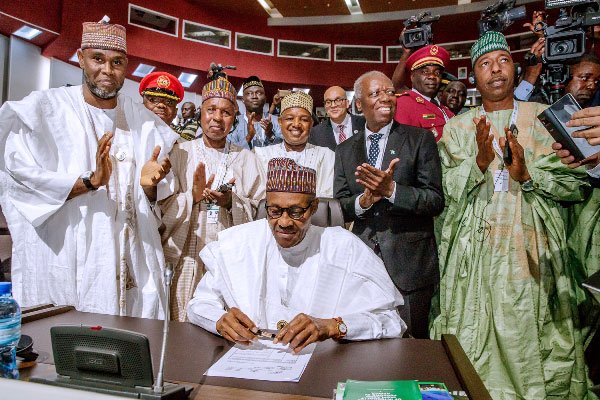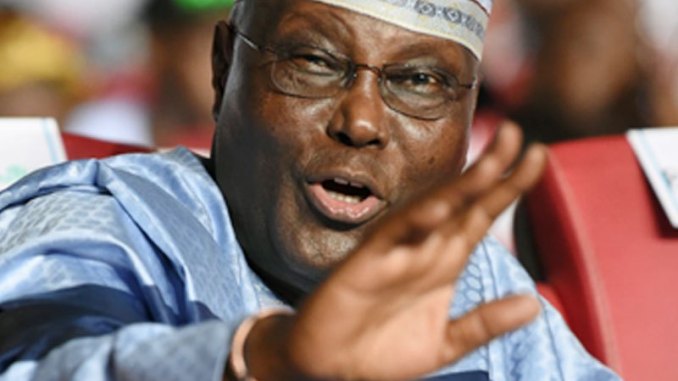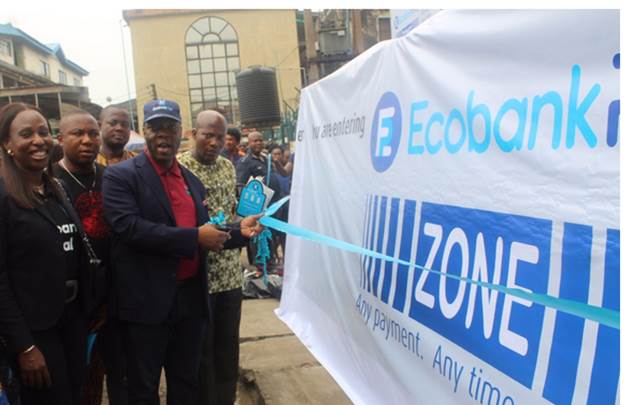(Special Report) AfCFA: Nigeria at loss as Morocco, Egypt, S’Africa to reap from logistics
Investigations by Business Hilights Intelligence Unit (BHIU), an independent research arm of Business Hilights Publications, have revealed that the underdevelopment of Nigeria’s indigenous shipping capacities over the years will be a minus for the country on the effective takeoff of the emerging Africa Continental Free Trade Agreement (AfCFTA).
Even though President Muhammadu Buhari has finally signed on behalf of Nigeria at the just concluded Niamey Africa Union (AU) meeting earlier this month, chances are that the poor state of both air and maritime infrastructure, absence of national air and sea carriers and the stressed capacities of indigenous shippers in terms of vessel ownership may turn out to become blessing in disguise for the highly developed trio of Morocco, Egypt and South Africa.
Whereas every African economy is fine-tuning its manufacturing sector ahead of full takeoff of AfCFTA, stakeholders in Nigeria’s logistics industry seem confused on the steps to take to avoid being cut off of the untapped multibillion dollar logistics market.
Just as many, especially players in the maritime sector are looking confused on the exact provisions of AfCFTA concerning their industry considering the dearth of infrastructures and their observed incapacitated status; players in the aviation industry are still struggling to find their footings on the international space with their shrunk fleet capacity.
Analysts are upbeat that the success secret of AfCFTA, apart from goods, remains transport logistics, but the readiness of Nigerian players both in air and sea currently remains strong suspect.
This is based on the fact that there is no national carrier both in air and sea and available seaports are already stretched to capacities.
In the light of this unfortunately, it is becoming clear that the likes of South Africa, Morocco, and Egypt will dominate and call the shots on shipping while Kenya, Ethiopian, South Africa, Rwanda, Morocco and Egypt will be smiling to banks in freighting continental goods that go by air.
Under the demand and supply patterns of seaborne trade, only the trio of Egypt, South Africa and Morocco can be said to have diversified their economies with enabling greater integration into regional and global value chains in terms of containerized trade and port traffic volumes.
According to the 2018 report by the UNCTAD, “Africa relies heavily on ships and ports to service its intercontinental trade. While it accounts for approximately 2.7% of global trade by value, the continent contributes higher shares to global seaborne trade – 7% and 5% of maritime exports and imports by volume, respectively. While one-third of African countries are landlocked, maritime transport remains the main gateway to the global marketplace”.
“Maritime trade in Africa is shaped by the continent’s trade concentration and limited diversification. Accordingly, 40% of goods exported by sea in 2017 comprised of crude oil, while over two-thirds of imports were accounted for by dry cargoes (dry bulks and containerized goods) and close to 20% of imports were made up of petroleum products and gas.
Besides, the European Union remains Africa’s major trading partner although its share of trade has declined from about half in 1995 to one-third in 2017. In recent years, the share of trade with the United States of America has fallen while trade with China has increased: China, and Asia in general, have incrementally cut into the EU and US share of African trade. This is opening new opportunities for the continent both as a consumer market as well as a potential manufacturing region, for example, as shown by growing textile and garment manufacturing activity in Ethiopia.
The report made it clear that “Africa’s ports account for 4% of global containerized trade volume, much of which comprises imports of manufactured goods. Africa’s shipping and ports do not always match global trends and standards. Apart from four container terminals in Morocco, Egypt and South Africa, no other African port was featured in the 2016 list of Top 100 global container ports.
Business Hilights reports that shipping connectivity, which significantly influences transport cost levels, is below the global average in Africa. African countries shipping connectivity is strongly influenced by their geography. The best-connected countries are those at the continent’s corners, where international shipping routes connect to hub ports, notably in Morocco, Egypt and South Africa. They are followed by sub-regional load centres, notably Djibouti, Togo and Mauritius.
Combinations of public and private investments, port reforms, and improved transit to connect to neighbouring landlocked countries have helped these countries to become leaders in African container shipping connectivity.
However, there are strong indications that the above statistics have not changed much, meaning that Nigeria may finally be at the clear losing end in terms of transport logistics whenever AfCFTA will go live.









